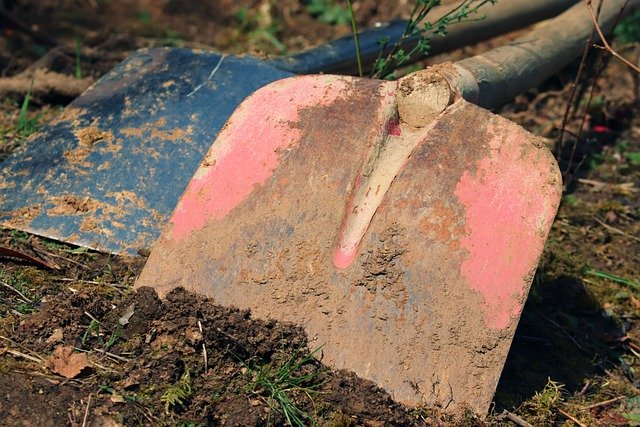
We usually treat Japanese knotweed by spraying the leaves with herbicides. A typical knotweed treatment programme consists of multiple herbicide applications over a period of 3 years, followed by a 2-year monitoring period to ensure that the problem is under control.
If time is of the essence, excavation is a quicker (but more expensive) alternative to the above. Heavy excavation machinery is used to dig up the affected area; this may be combined with spraying for optimum results.
Learn more about our Japanese knotweed treatment plans
Once excavation is complete, the Japanese knotweed and the surrounding soil can be:
- Removed to an authorised landfill site
- Relocated to a different part of the affected site
- Buried in a hole on the affected site
Will Japanese knotweed grow back if buried?
It's possible for even a small fragment of Japanese knotweed rhizome (root) to grow into a whole new plant if left in the soil. This is one of the reasons why Japanese knotweed is such a prolific and problematic species.
However, burial can be an effective disposal method as long as the Japanese knotweed is enclosed in a special weed-proof membrane. When we bury Japanese knotweed after completing an excavation, we seal it using a geotextile membrane in accordance with the Environment Agency's regulatory position statement (RPS 178).
What are the rules for burying Japanese knotweed?
The guidelines for Japanese knotweed burial are set out in the Environment Agency document 'Treatment and disposal of invasive non-native plants: RPS 178'. The full text of RPS 178 can be viewed online here.
The Environment Agency's guidance states that it's OK to bury Japanese knotweed as long as:
- It's buried on the same site it came from.
- It's buried at least 5 metres deep (or 2 metres if sealed with a geotextile membrane).
- Any membranes used are undamaged, securely sealed, UV resistant, of sufficient size, and capable of lasting for at least 50 years.
RPS 178 also explicitly recommends utilising the services of "a contractor experienced in burying Japanese knotweed, preferably backed by an assurance scheme such as those offered by a relevant trade body".
Why choose Taylor Total Weed Control?
We at Taylor Total Weed Control have been dealing with Japanese knotweed for many years, and we offer an insurance-backed guarantee to give you extra peace of mind.
We are registered with the Property Care Association, and all of our reports are approved by the RICS (Royal Institute for Chartered Surveyors).
Request a FREE Japanese Knotweed Survey
